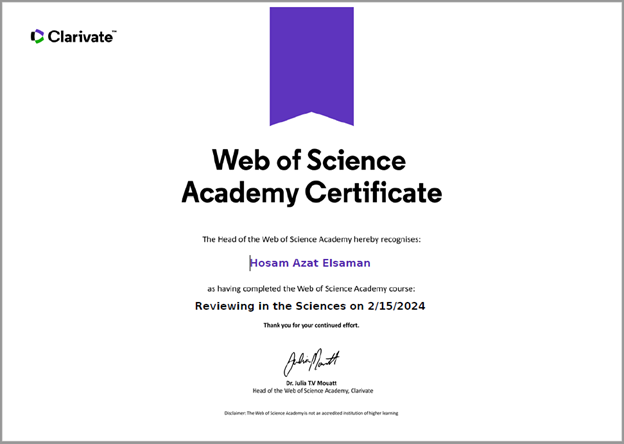Knowledge economy: trends in the world and analysis of Ukraine
DOI:
https://doi.org/10.15549/jeecar.v7i1.325Keywords:
knowledge economy, globalization, human capital, Ukraine, Index of knowledge economyAbstract
The objective of the article is to study the regional development of Ukraine through the prism of indicators that characterize the knowledge-based economy, comparing it to other countries. It has been determined that the appearance of a new economy in the world arena is dictated by time and new trends in the world. Performed study justified that in the conditions of Ukraine, economic knowledge can be a breakthrough in the country's growth. Given the ambiguity and uneven economic development of the administrative-territorial units of Ukraine, the main destabilizing factors that hinder the successful implementation of reforms have been identified. A comparative analysis of the Ukrainian economy with that of Poland has been carried out. For this reason, the critical requirements for Ukraine’s development are economic knowledge based on science, modern technologies, improved educational system, and continues professional training of executive management personnel.
References
Alguliyev, R. M., & Aliyev, A. G. (2019). The development of indicators and indices system characterizing information and knowledge economy. Paper presented at the 11th IEEE International Conference on Application of Information and Communication Technologies, AICT 2017 - Proceedings, Retrieved from https://doi.org/10.1109/ICAICT.2017.8687263 DOI: https://doi.org/10.1109/ICAICT.2017.8687263
Ali, I., Musawir, A. U., & Ali, M. (2018). Impact of knowledge sharing and absorptive capacity on project performance: The moderating role of social processes. Journal of Knowledge Management, 22(2), 453-477. Retrieved from doi:10.1108/JKM-10-2016-0449 DOI: https://doi.org/10.1108/JKM-10-2016-0449
Androschuk, G.O. (2017). Assessment of the development of national innovation systems. Materials of the XIIII International Scientific and Practical Conference. Retrieved from https://www.google.com.ua/url?sa=t&rct=j&q=&esrc=s&source=web&cd=1&cad=rja&uact=8&ved=2ahUKEwidjP3PpbjhAhXBKQKHd6qAOsQFjAAegQIABAC&url=https%3A%2F%2Fstepscenter.org.ua%2Farchives%2Fodessa2017.pdf&usg=AOvVaw1IXWA3MgXaoUE5IE96MwsF
Asongu, S. A., & Andrés, A. R. (2019). Trajectories of knowledge economy in SSA and MENA countries. Technology in Society, https://doi.org/10.1016/j.techsoc.2019.03.002 DOI: https://doi.org/10.1016/j.techsoc.2019.03.002
Çavu?o?lu, B. (2018) Knowledge-baseded economy: Where does North Cyprus stand? Paper presented at the Proceedings of the European Conference on Knowledge Management, ECKM , pp. 132-140.
Chen, D. (2005). The Knowledge Economy, KAM Methodology and World Bank Operations.
Demir, O., Genc, E. G., Alp, E. A., & Yildirim, F. (2015). A new knowledge society index: Global tendencies and an analysis of turkey. Kuram Ve Uygulamada Egitim Bilimleri, 15(2), pp. 325-335. https://doi.org/10.12738/estp.2015.2.2356 DOI: https://doi.org/10.12738/estp.2015.2.2356
Dima, A. M., Begu, L., Vasilescu, M. D., & Maassen, M. A. (2018). The relationship between the knowledge economy and global competitiveness in the European Union. Sustainability (Switzerland), 10(6). Retrieved from https://doi.org/10.3390/su10061706 DOI: https://doi.org/10.3390/su10061706
From socialism to a prosperous country: 16 charts about the economy Police (2018) from https: //businessviews.com.ua/en/economy/id/ekonomika-polschi-1930/
Hope, D., & Martelli, A. (2019). The transition to the knowledge economy, labor market institutions, and income inequality in advanced democracies. World Politics, 71(2), 236-288. Retrieved from doi:10.1017/S0043887118000333 DOI: https://doi.org/10.1017/S0043887118000333
Index of knowledge economy, calculated according to the World Bank methodology (2018) Retrieved from https: //gtmarket.ru/ratings/ knowledge-economy-index/knowledge-economy-index-info
Ivanov, Y., & Tyshchenko, V. (2015). Public-private partnership potential in knowledge economy: Regional aspect. Economic Annals-XXI, 3-4(1), pp.28-31.
Kinash, I., Andrusiv, U., Golovnia, O & Popadynets, I. (2019). Aspects of the formation and development of innovation infrastructure in Ukraine. Management Science Letters, 9(13), 2403-2414. Retrieved from https://doi.org/10.5267/j.msl.2019.7.015 DOI: https://doi.org/10.5267/j.msl.2019.7.015
Knowledge economy (2011): what should be the country's development strategy. And why Ukraine is still lagging behind? Retrieved from http://forbes.net.ua/ru/opinions/1413550-ekonomika-znan-yakoyu-mae-buti-strategiya-rozvitku-krayini
Mousavi, Z., Moeinfar, Z., & Amouzesh, N. (2013). The role of intellectual capital in knowledge-based economy. Life Science Journal, 10(SUPPL.6), pp. 56-60.
Nour, S. S. O. M. (2015). Overview of knowledge economy in the arab region. Journal of the Knowledge Economy, 6(4), 870-904. Retrieved from https://doi.org/10.1007/s13132-013-0153-8. DOI: https://doi.org/10.1007/s13132-013-0153-8
Rahmani, A., Najafi, S. M. B., & Karimi, M. S. (2019). An introduction to the criteria for selecting leading knowledge. Iranian Journal of Information Processing Management, 34(2), 487-516. Retrieved from http://siteresources. worldbank.org/KFDLP/Resources/KAM_Paper WP. Pdf
Sakayya ,T. (1999). The Value Created by Knowledge, or The History of the Future. A New Post-Industrial Wave in the West. Anthology (??. 340-640) Moscow, Russia: Academia.
Senenko, A. (2017) How does science work in Poland? Retrieved from https://site.ua/anton.senenko/10838/.
Sinha, G. R. (2018). Innovation and research skill for knowledge-based economy of Myanmar: Current status and recommendation. Journal of Science and Technology Policy Management, Retrieved from https://doi.org/10.1108/JSTPM-12-2017-0078 DOI: https://doi.org/10.1108/JSTPM-12-2017-0078
State Committee of Statistics of Ukraine, (2012-2017), Regions of Ukraine in 2017, 2 volumes, Kyiv. Retrieved from www.ukrstat.gov.ua.
Stiglitz, J. World Development Report, (1998/99). Knowledge for Development. Retrieved April 20-21, 1999.
Toffler, E. (2008). Revolutionary wealth: how it will be created and how it will change our lives. Moscow, Russia: AST.
UKRAINE 2030: Doctrine of balanced development (2018). Retrieved from http: //econom.chnu.edu.ua/wp-content/uploads/2018/03/E-Book-Doctrine-2030.pdf
Zelinska, ?.O. (2013). Educational Management and Globalization Challenges: Regional Aspect. Modern problems of social and economic development. ?p.75-77.
Downloads
Published
How to Cite
Issue
Section
License
The JEECAR journal allows the author(s) to hold the copyright and publishing rights of their own manuscript without restrictions.
This journal applies the Creative Attribution Common License to works we publish, and allows reuse and remixing of its content, in accordance with a CC-BY 4.0 license.
Authors are free to: Share — copy and redistribute the material in any medium or format and Adapt — remix, transform, and build upon the material for any purpose, even commercially.
Under the following terms: Attribution — You must give appropriate credit, provide a link to the license, and indicate if changes were made. You may do so in any reasonable manner, but not in any way that suggests the licensor endorses you or your use.
No additional restrictions — The author may not apply legal terms or technological measures that legally restrict others from doing anything the license permits.
The JEECAR Journal is committed to the editorial principles of all aspects of publication ethics and publication malpractice as assigned by the Committee on Public Ethics.












